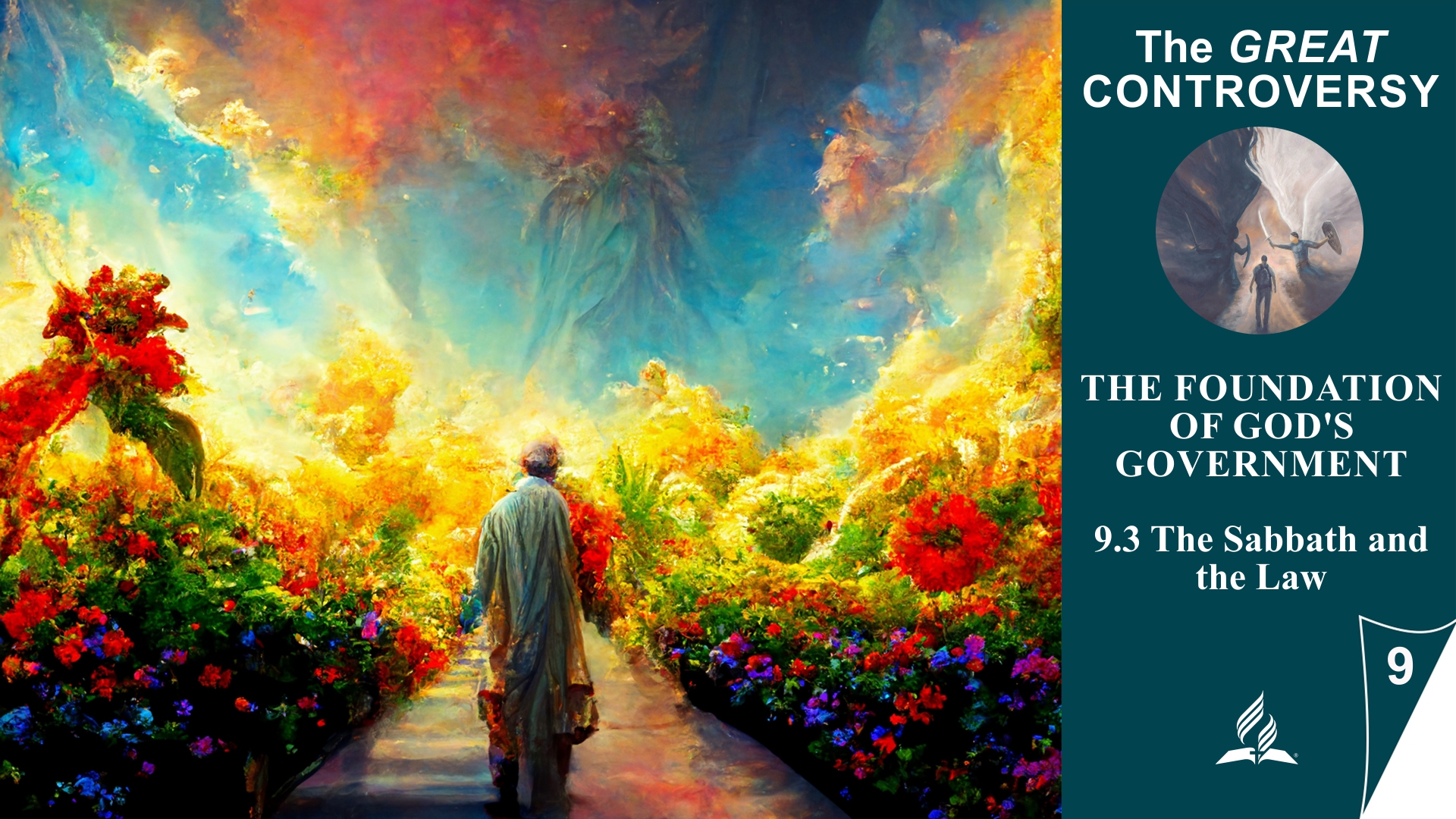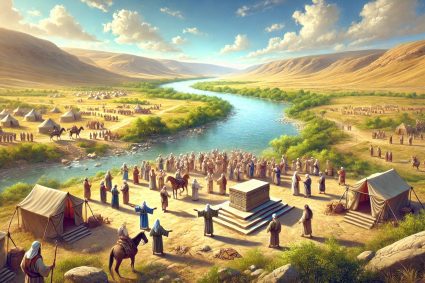


9.3 The Sabbath and the Law
The Sabbath: Connection of Creation and God’s Law
Read Revelation 14:6–7; 4:11; Genesis 2:1–3, and Exodus 20:8–11. What relationship exists between creation, the Sabbath, and God’s law?
The connection between creation, the Sabbath, and God’s law is fundamental to our faith and understanding of God’s intentions for us as his creatures. The creation story in Genesis teaches us that God created the world and everything in it with a specific purpose and boundless love. The Sabbath, the seventh day of the week, reminds us that after six days of creation, God rested and gave us a day of rest and worship.
In the Ten Commandments, especially in the verses of Exodus 20:8-11, God reaffirms the holiness of the Sabbath and its significance as a day of rest and remembrance of his creation. Thus, the Sabbath is not only a day of rest but also a symbol of our relationship with God as Creator and Redeemer.
Revelation, particularly in verses 14:6–7, reminds us that the Sabbath plays a role in God’s end-time plan and urges us to rest in his love and care on this day. Thus, there is a close relationship between creation, the Sabbath, and God’s law, calling us to acknowledge God’s creation, honor him as our Creator and Redeemer, and sanctify his Sabbath as a day of rest and worship.
Most Seventh-day Adventists have been confronted with the accusation of legalism, usually in connection with Sabbath observance. Discuss the Sabbath as a symbol of redemption and righteousness through faith. Why might the observance of God’s command to rest lead people to think we are trying to earn our way to heaven?
The accusations of legalism against Seventh-day Adventists, especially in connection with the Sabbath, may be based on misunderstandings about the meaning of the Sabbath and salvation by faith.
Firstly, it’s important to emphasize that Sabbath observance for Adventists is not viewed as a means of salvation. Rather, they consider the Sabbath as a gift from God designed to deepen the relationship between humanity and its Creator. Observing the Sabbath is an expression of gratitude for God’s creation and redemption, as well as a sign of trust in God’s care and love.
The Sabbath is also a symbol of redemption through faith, as it recalls the rest offered in the Gospel. According to Christian doctrine, salvation comes not through works but through faith in Jesus Christ. The Sabbath calls for resting from our works and relying on God’s grace and forgiveness.
However, why might people still think that Adventists are trying to earn their way to heaven? One reason could be that consistent Sabbath observance and adherence to other commandments could be interpreted as an outward expression of piety aimed at gaining divine favor. This interpretation, however, misunderstands the deeper spiritual principles and emphasizes outward form over the inner attitude of the heart.
Another reason could be that some people may perceive the Sabbath commandment as an additional burden they must bear to be considered pious or righteous. This can lead to the misunderstanding that Adventists are trying to earn heaven by observing the Sabbath, instead of relying solely on God’s grace.
Overall, it’s important to clarify the misunderstanding about the Sabbath as a means of salvation by faith and to emphasize the Sabbath’s significance as a gift from God and a symbol of rest and trust in his grace.

The relationship between creation, the Sabbath, and God’s law is deeply rooted in biblical teaching and has significant implications for the faith and daily lives of believers.
Biblical Foundations
-
Creation (Genesis 2:1-3)
-
God completed creation in six days and rested on the seventh day.
-
This rest was not just physical but a celebration of the perfection and completion of creation.
-
The seventh day was blessed and sanctified as an eternal sign of creation.
-
-
God’s Law (Exodus 20:8-11)
-
The fourth commandment calls for the sanctification of the Sabbath.
-
It connects creation (because God created the world in six days and rested on the seventh day) with the weekly rest day for humans.
-
The Sabbath commandment reminds believers of their origin and their Creator.
-
-
Sabbath in the End Times (Revelation 14:6-7)
-
The end-time message calls for worship of the Creator.
-
The Sabbath is emphasized as a day of rest and worship to honor God’s work of creation.
-
Connection to Everyday Life and Faith
-
Rhythm of Rest and Work
-
The Sabbath provides a weekly rhythm that helps people find a balance between work and rest.
-
It is a time for physical and mental renewal, promoting health and well-being.
-
-
Remembrance of God’s Creation and Redemption
-
The Sabbath serves as a weekly remembrance of God’s creation work and His redemption.
-
It reminds believers that they are not only creatures of God but also redeemed through Jesus Christ.
-
-
Expression of Faith and Loyalty
-
Observing the Sabbath is an expression of faith and loyalty to God’s commandments.
-
It demonstrates trust in God’s care and acknowledgment of His sovereignty.
-
-
Community and Worship
-
The Sabbath is a time for community with other believers and for worshiping God.
-
It provides an opportunity to focus together on God’s Word and to grow spiritually.
-
Clarification of Misunderstandings
Accusation of Legalism
-
Adventists do not see the Sabbath as a means of salvation but as a gift from God.
-
The Sabbath is a symbol of grace and salvation through faith, not works.
-
Resting on the Sabbath demonstrates trust in God’s grace rather than self-effort.
Conclusion
The connection between creation, Sabbath, and God’s law is central to understanding faith and practice in daily life. The Sabbath reminds us of God’s creation and redemption, provides a rhythm of rest and worship, and expresses faith and loyalty to God. By sanctifying the Sabbath, our relationship with God is deepened, and the significance of His creation and redemption work is emphasized.
The Sabbath deeply connects us to God’s creation and His law, reminding us that we are created out of His boundless love and that we find daily renewal in His rest and care.
(Visited 36 times, 1 visits today)
























